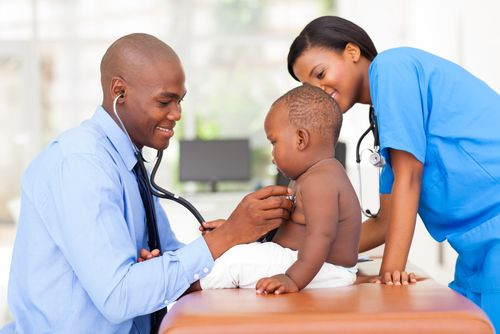Louisiana Flu Deaths: 2 More Children Confirmed Dead From Flu; State’s Rate Of Infection 3 Times Normal

Louisiana reported the death of two children from the flu to the Centers for Disease Control and Prevention (CDC), upping the state’s total number of pediatric deaths to four. Since Oct. 1, 2013, lab tests have confirmed at least 53 deaths from influenza statewide, where the rate of infections is nearly three times what the CDC projects as normal. The latest pediatric deaths, one occurring in January, the other this past week, are from Southeast and Southwest Louisiana, while the two previous deaths were reported in Northwest and Southeast Louisiana.
Dr. Frank Welch, immunization medical director for the state Office of Public Health, told The Advocate, that virtually all reported cases are from the swine flu strain, H1N1 influenza. According to the Department of Health and Hospitals, the state's seasonal flu activity is most prevalent in North and Central Louisiana. Because not all cases of flu are reported, the CDC estimates there may have been up to 520,000 cases of the flu in Louisiana, up to 5,200 hospitalizations, and up to 600 deaths caused by influenza since October 2013.
H1N1 is the dominant strain of flu that is circulating right now, and public health officials expect this year's flu season to continue into April. Because of the increased risk of infection, DHH strongly encourages all residents who haven't already done so to get a flu vaccination, which protects against the seasonal flu and the H1N1 strain. After receiving the shot, it will take about seven to 10 days for the inoculation to reach its full potential within your system. Certain groups of people are at a higher risk of developing flu-related complications and, for this reason, should consider the inoculation:
- Children younger than 5, especially children younger than 2
- Adults over the age of 65
- Pregnant women
- American Indians and Alaskan Natives, who showed higher rates of flu complications last season
- People who have a weakened immune system, such as those on chemotherapy, or those with chronic medical conditions such as diabetes, asthma, and heart or lung disease
- Health care workers
- Caretakers of people at high-risk, including babies younger than 6 months
According to the DHH, the vaccine is plentiful and available at many places, including the offices of primary care physicians, pharmacies, some employers, and Louisiana's parish health units. Click here for more information about inoculation shots.
For those who are already sick with flu-like illness, CDC recommends patients stay home, except to get medical care or necessities, for at least 24 hours after the fever has receded. While sick, limit your contact with others as much as possible to keep from infecting them.
Published by Medicaldaily.com



























